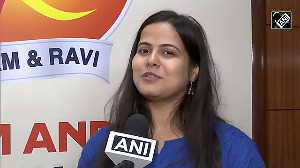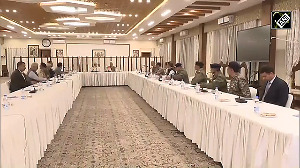The Maharashtra government has told the Centre that it does not want Ratnagiri Gas and Power Company, earlier called Dabhol Power, to sell power outside the state.
Chief Minister Vilasrao Deshmukh wrote to the power ministry yesterday, saying that the state, which suffered from a severe power shortage, was unwilling to sell power from the Dabhol plant to consumers outside the state.The power ministry wanted 10 per cent of power generated at Dabhol sold outside Maharashtra.
An empowered group of ministers on Dabhol, which also met yesterday, approved a mega-power plant status for Dabhol. The mega-power status is accorded to thermal power plants with capacities of over 1,000 MW. The status makes these plants eligible for Customs duty concessions on import of capital goods.
However, one of the conditions plants seeking concessions under the mega-power status have to fulfil is inter-state sale of power.
The condition has been introduced in order to distribute risks for plant promoters so that they are not dependent on sale of power to only one state electricity board.
The percentage of power to be sold in a state is not specified. However, financial institutions want the policy altered to specify that 25 per cent of power generated be sold in another state.
The EGoM also approved the proposal for a negotiated tariff for sale of power from the Dabhol plant. Indian financial institutions have urged the Centre to ask the state power regulator not to interfere in setting of tariffs for at least five years after the plant becomes operational.
"The move will ensure that tariffs remain fixed at Rs 2.30 per unit and any cost escalation on account of higher LNG price or other factors are not sought to be passed on to the tariffs," said sources, adding that higher tariffs would be problematic as the Maharashtra government had said it would not be willing to pay more than Rs 2.30 a unit.
The EGoM also cleared benefits available under Section 80 IA of the Income Tax Act to the project. However, taxation experts pointed out that the department of revenue would have to take a view on whether the block of 10 consecutive years, for which the benefits would be made available, would start with a retrospective effect from 2000, when the 740 Mw plant (stage I) became operational, or from 2006, when the 2,184 Mw facility (stage I and II) was expected to restart.







 © 2025
© 2025